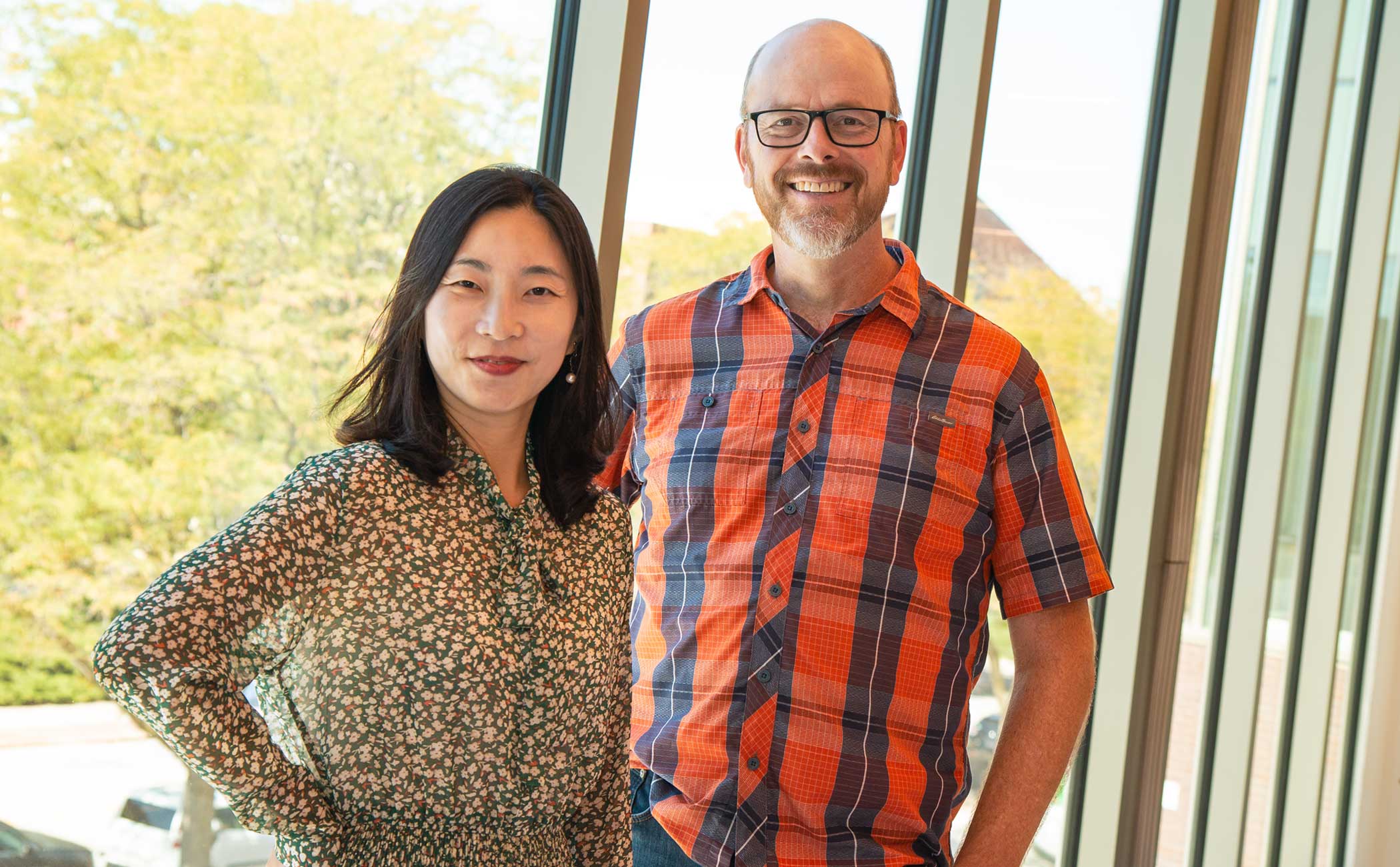
Nebraska education researchers work to build statewide consensus on equity
23 Jan 2023 By Chuck Green, CYFS
Researchers in Lincoln and Kearney are working to bridge the distance between two University of Nebraska campuses and converge their shared interests on the state’s accountability system to ensure all students have equal opportunities to succeed.
The 2015 Every Student Succeeds Act brought greater attention to the need for equity to reduce opportunity gaps in K-12 education, prompting Nebraska policymakers to redesign the state’s school accountability system with an emphasis on education equity for all students.
Despite the law, Nebraska policymakers and educational stakeholders to not always agree on what equity means and how to implement it at the school level. That uncertainty hinders school systems in meeting the needs of students, particularly those who are historically marginalized.
Taeyeon Kim, assistant professor of educational administration, is working with Ted Hamann, professor of teaching, learning and teaching education, and Aprille Phillips, associate professor of educational administration at the University of Nebraska at Kearney, to forge strong research relationships between the University of Nebraska–Lincoln, UNK and community partners.
Funded by a one-year University of Nebraska Collaboration Initiative Team Formation grant, the team will explore how Nebraska policymakers define learning equity, and how they align those definitions with accountability in local school settings. They will also identify ways educational leaders can effectively support more equitable learning in the state’s K-12 schools.
“For me, this is a great opportunity to learn about Nebraska school systems and how they frame equity within the system of accountability — how state policymakers see accountability differently than how local school systems actually implement that accountability into their daily practices,” said Kim, who is in her third year in Nebraska. “There must be tensions around those processes.”
To get started, Kim, Hamann and Phillips are reviewing state-level policy documents. They have also reviewed videos produced by the Nebraska Department of Education to examine how equity has been defined and shifted in Nebraska.
Eventually, the team’s goal is to conduct large-scale research on equity-driven accountability systems in Nebraska K-12 education. They will jointly apply for grants, submit co-authored manuscripts to peer-reviewed journals and attend conferences to help the University of Nebraska engage with state policymakers and local partners to advance educational equity.
“Nebraska has diverse communities including rural, urban and suburban, as well as people from varying backgrounds in terms of race, ethnicity, language, immigration, religion and sexual orientation,” Kim said. “So at the state level, there must be dilemmas when they make decisions on how to promote equity by addressing the needs for different school communities in the state accountability.”
Kim notes that Kearney’s surrounding communities, for example, differ from those near Lincoln and Omaha.
“Through connections with educational leaders in those central Nebraska communities, and learning from the perspectives of their students, we as a team can better address the needs of schools across Nebraska,” she said.
Learn more about this project in the CYFS Research Network. This project aligns with the UNL Grand Challenge of early childhood education and development.
College of Education and Human Sciences
Educational Administration
Teaching, Learning & Teacher Education
Strong Communities